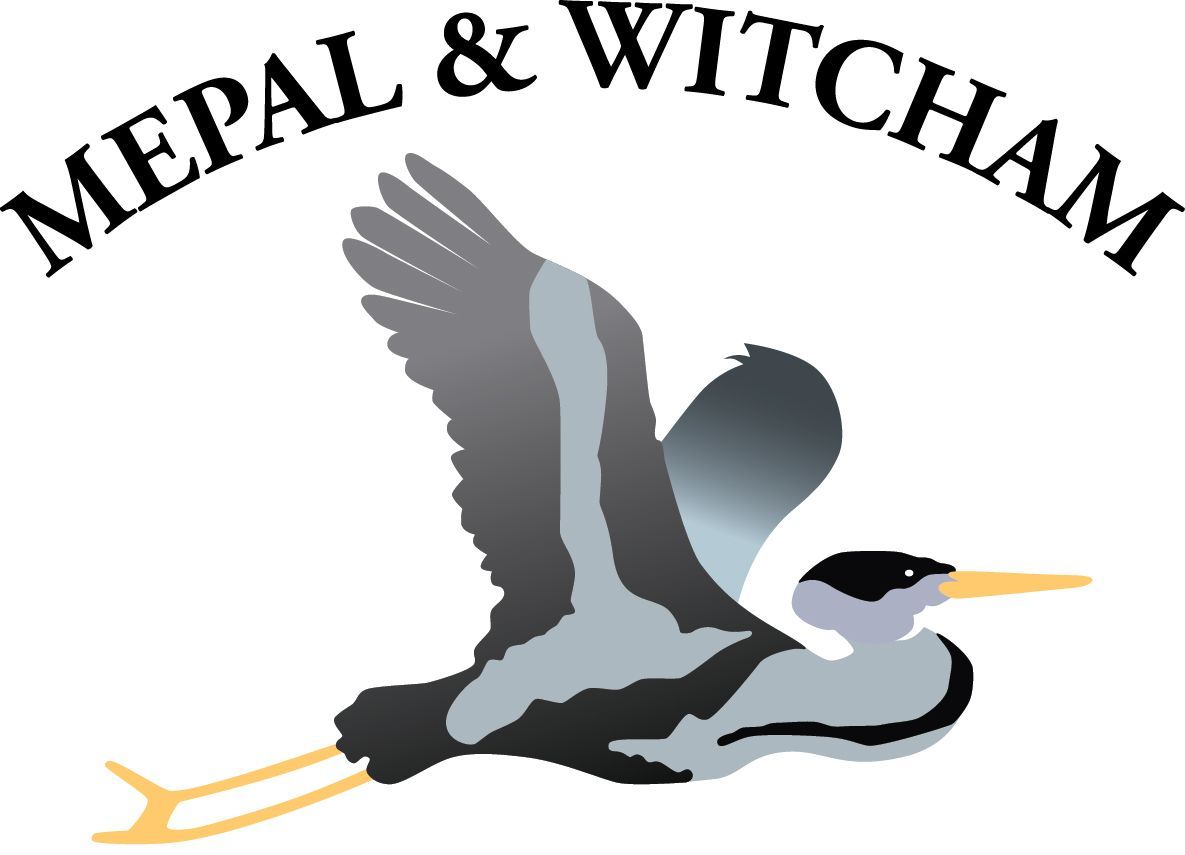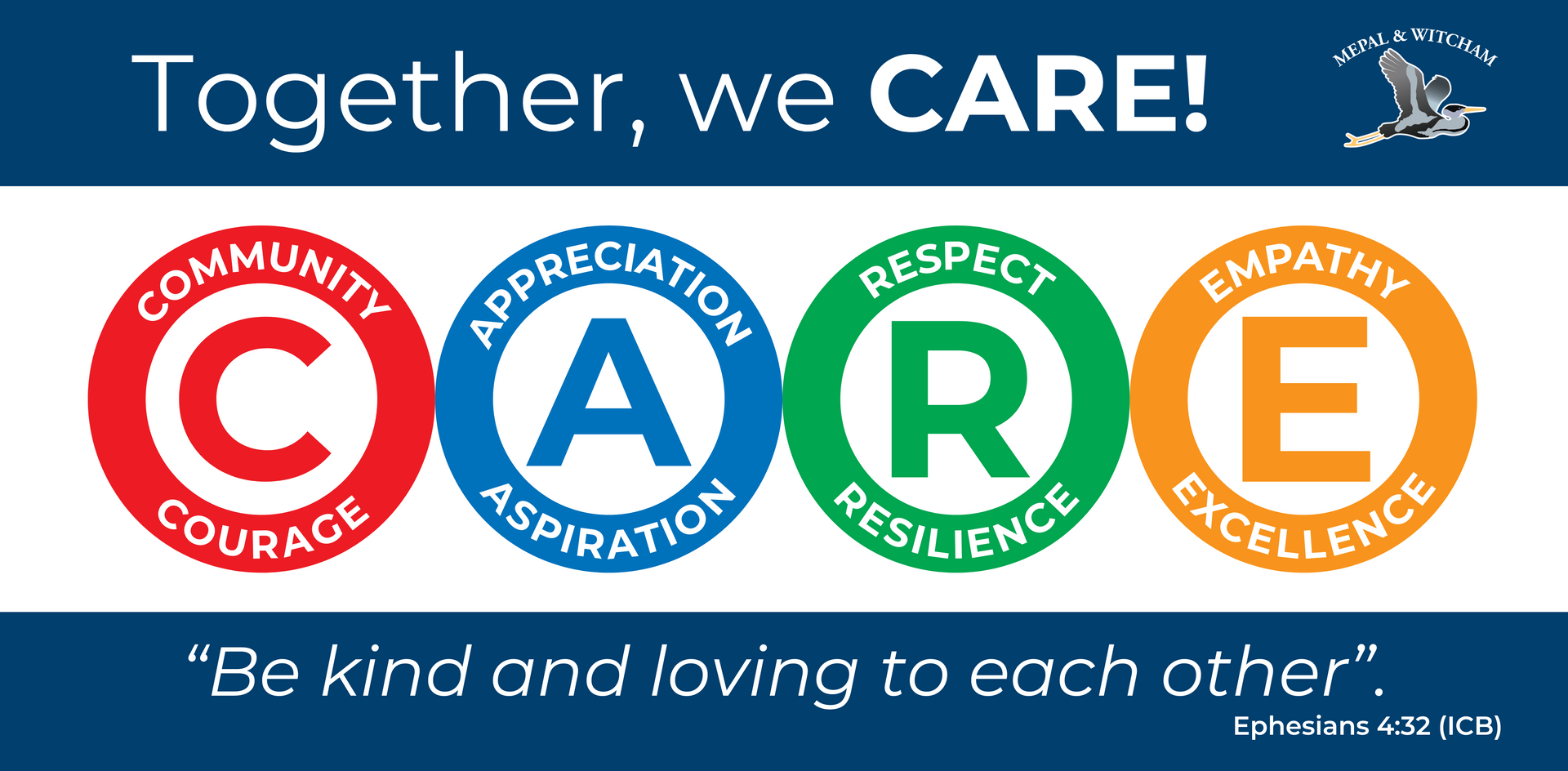
EYFS
Owls Class
Welcome to Owls Class page:
On this page you will be able to find information about the work which our Early Years pupils are undertaking. You will also find information of ways in which you can help and encourage pupils in their learning to enable them to fulfil the school values ‘To Nurture, To Grow and To Flourish’.
To enable you to be fully involved with your child’s learning we hold half termly consultation meetings which provide an opportunity for pupils and parents to meet with the class teacher to discuss progress, celebrate achievements and discuss the next steps.
Planned Visits / Visitors:
- We will be doing a Spring Walk in the locality
- We are hoping to have a visit from Fossils Galore
- We will be visiting the church
Enrichments
Chinese new year 22nd Jan (Chinese Food Tasting)
National handwriting day 23rd Jan
National story telling week 29th Jan- 5th Feb
Children’s Mental Health Week 7th-13th Feb
Valentine’s day 14th Feb
Shrove Tuesday 21st Feb (Pancake Making)
World Book day 2nd March
British Science Week 11th-20th March
Red Nose Day 17th March
Mother’s day 27th March
Palm Sunday 2nd April
Easter Sunday 9th April
Good Friday 7th April
Yom Hashoah 27th-28th April
Easter bonnet parade
Caterpillars/ tadpoles in the classroom
Welly Walks
- Identifying and exploring the weather and seasons
- Winter woodland walk
- Identifying winter plants
- Dressing for Winter/ Keeping War
- Winter Colours
- Spring Scavenger Hunt
- Identifying and exploring signs of spring
- Spring Colours
- Visits to the school pond
Our topics this term are as follows:
- All about me and the people who are special to me
- My Environment and the people around us
Autumn Term
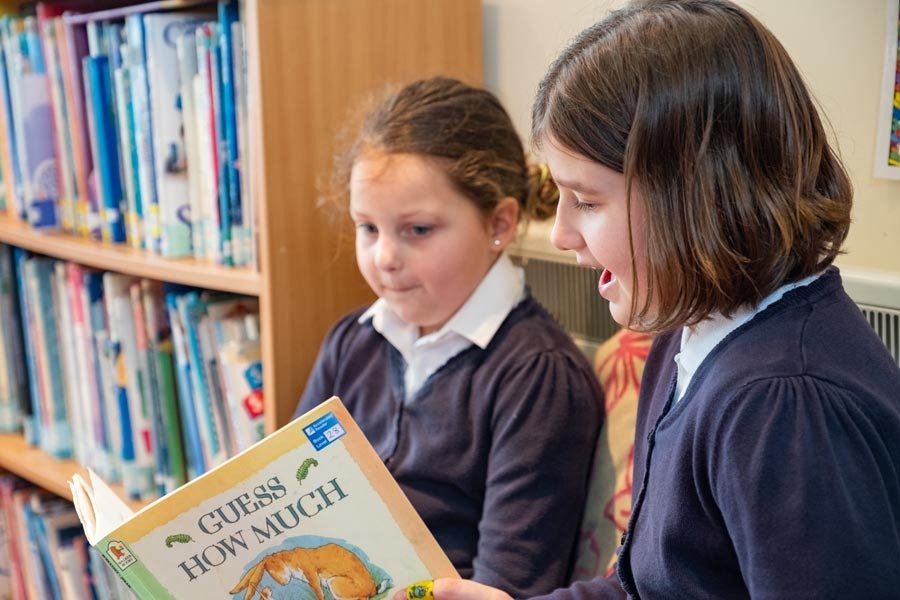
The development of children’s spoken language underpins all seven areas of learning and development. Children’s back-and-forth interactions from an early age form the foundations for language and cognitive development. This term we will be encouraging all the children to feel confident at speaking with their peers, staff and as part of the class. We will be developing the children’s ability to track the speaker and actively follow what is being said and then offer a response. Our aim is that all the children are working towards using full sentences with clear articulation.
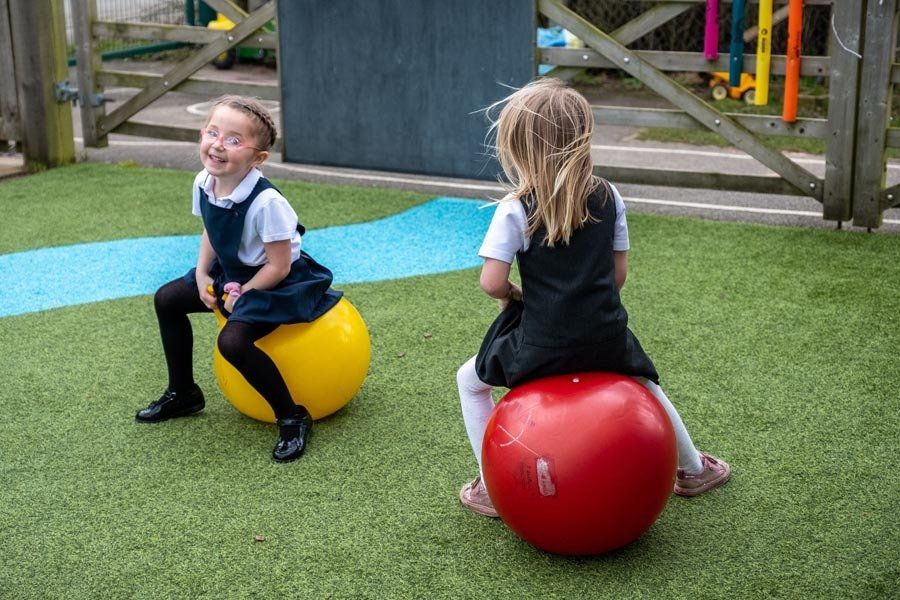
Physical activity is vital in children’s all-round development, enabling them to pursue happy, healthy and active lives. Gross and fine motor experiences develop incrementally throughout early childhood, starting with sensory explorations and the development of a child’s strength, co-ordination and positional awareness. This term the children will be introduced to a wide range of mark making tools encouraging the correct pencil grip and the development of control. They will also have support to begin to develop their scissor skills and work with playdough. Around half term the children will have the opportunity to take part in Autumn cooking activities using knives to cut up vegetables. Outside, in our gross motor sessions, they will experience using a wide variety of vehicles: Scutter Bugs, trikes of all sizes, scooters, balance bikes and space hoppers. Additionally, the children will all have access to our climbing frame. They will also be encouraged to build and climb on around and under their own creations using the large building equipment in our outside learning area like Types, planks and crates.

Children’s personal, social and emotional development (PSED) is crucial for children to lead healthy and happy lives, and is fundamental to their cognitive development. Underpinning their personal development are the important attachments that shape their social world. Strong, warm and supportive relationships with adults enable children to learn how to understand their own feelings and those of others. During our topic work this term the children will be thinking especially about who is special to them and their families. We will be finding out about all sorts of different families as well as our own family trees. We will also be thinking about the things we are good at and goals we would like to set for ourselves. Additionally, we will also be beginning our work on developing our self-regulation by identifying and naming our feelings. Using feelings spinners and chatter to begin every day.
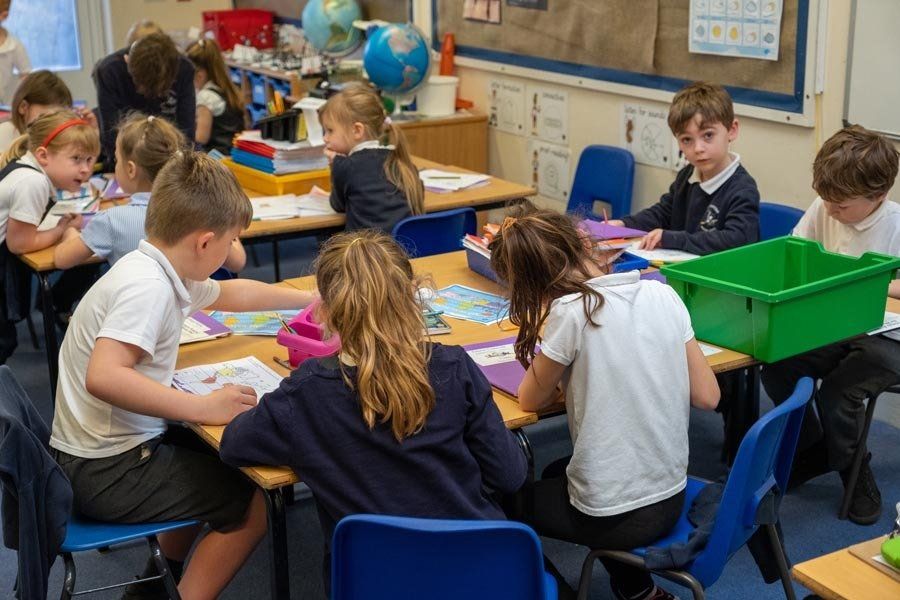
The basis of good literacy skills is language comprehension (necessary for both reading and writing) which starts from birth. It only develops when adults talk with children about the world around them and the books (stories and non-fiction) they read with them, and enjoy rhymes, poems and songs together. For this reason, all of our math’s literacy and topic related teaching is based on good quality children’s books and which child takes home a school bedtime story book weekly. All nursery children take part in daily phase one phonics sessions which are all about tuning in their ears and developing their listening skills so they can begin to develop segmenting and blending skill which are needed as the basis for word reading. Reception pupils this term will begin to cover the phase 2 phonics in which they learn their initial sounds and begin to apply them in whole word reading and writing using their segmenting and blending skills.
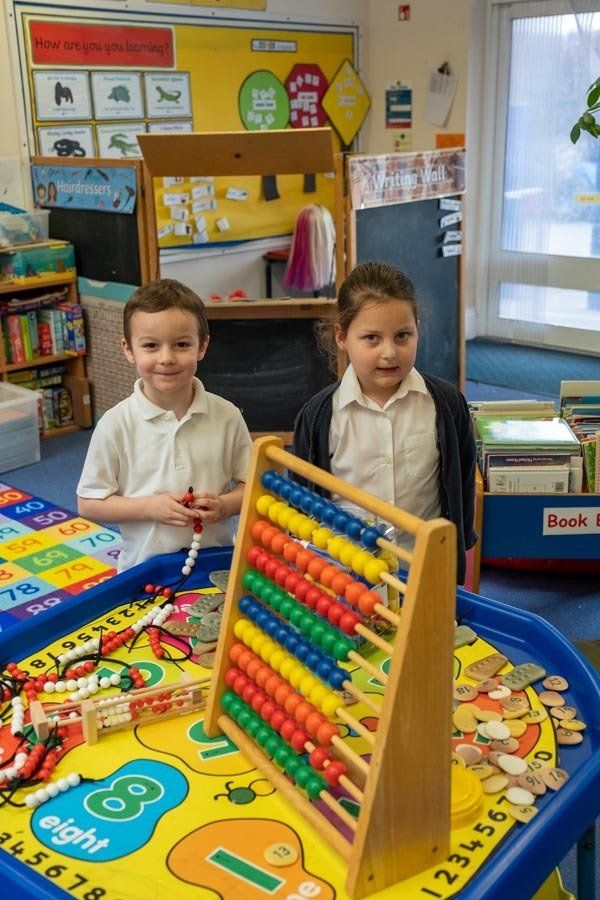
Developing a strong grounding in number is essential so that all children develop the necessary building blocks to excel mathematically. Children should be able to count confidently, develop a deep understanding of the numbers, the relationships between them and the shapes and patterns associated with them. This term we will be focusing on numbers to 5 and working on developing the children’s skills in pattern recognition, discrimination and construction. The children will be introduced to the idea of sets, odd one out, grouping items by the identification of properties like colour, shapes and sizes and the use of sorting circles. The development of the associated vocabulary will also be key.
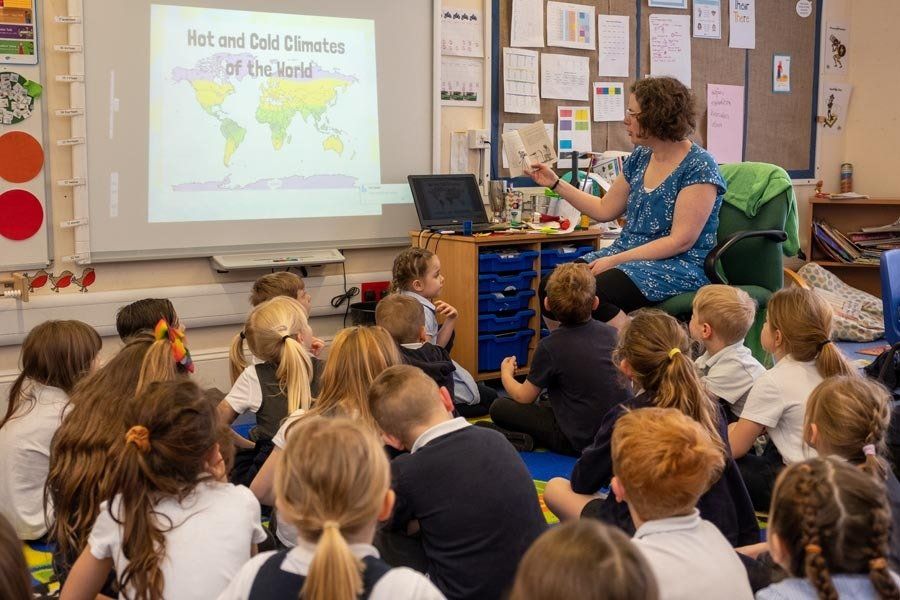
Understanding the world involves guiding children to make sense of their physical world and their community. The frequency and range of children’s personal experiences increases their knowledge and sense of the world around. This term we will be listening to a broad selection of stories, non-fiction, rhymes and poems will begin to foster the children’s understanding of our culturally, socially, technologically and ecologically diverse world. We will also be learning about the religious festivals of Jewish new year, Diwali and Christmas.
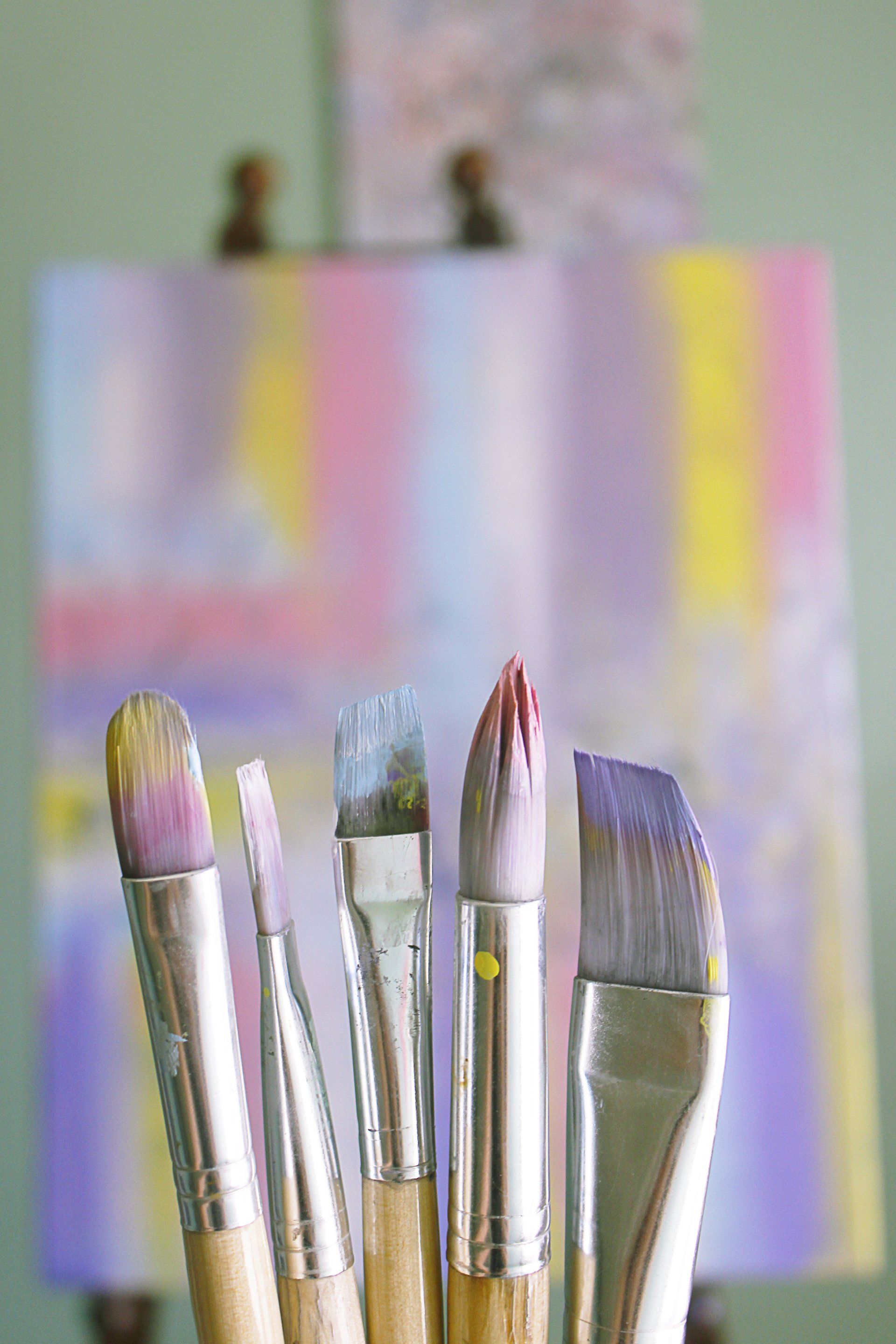
The development of children’s artistic and cultural awareness supports their imagination and creativity. It is important that children have regular opportunities to engage with the arts, enabling them to explore and play with a wide range of media and materials. This term the children will be thinking about the artist Archimbaldo after our Harvest festival work thinking about locally grown produce. They will also have the opportunity to in a range of media: mark making equipment like pencils and pens, paints, clay, junk modelling. We also have a range of musical instruments the children will be using to support our phonics work.
Spring Term
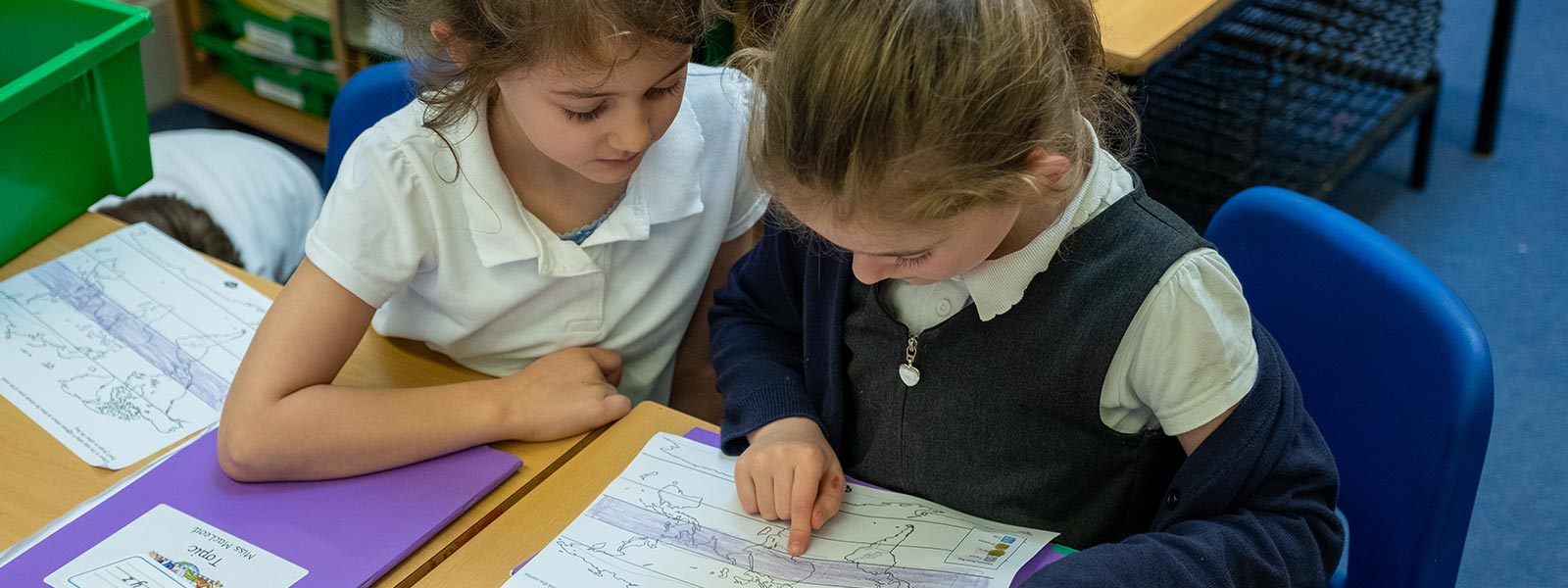
The development of children’s spoken language underpins all seven areas of learning and development. Children’s back-and-forth interactions from an early age form the foundations for language and cognitive development. This term we will be continuing to encourage all the children to feel confident at speaking with their peers, staff and as part of the class. We will be continuing to develop the children’s ability to track the speaker and actively follow what is being said and then offer a response. Our aim is that all the children are working towards using full sentences with clear articulation. This term we will be using the following key texts to support the children’s learning:
Nursery
We’re going on a Bear Hunt
Harry and the Dinosaurs Series
Dinosaur Roar
Bumpus Jumpus Dinosaurrumpus
Little Red Riding Hood
The Enormous Turnip
The Very Hungry Caterpillar
The Tiny Seed
Reception
Whatever Next
Meet the Planets
How to Catch a Star
Cat in the Hat
Oliver’s Vegetables
Jaspers Beanstalk
Once there were Giants
Gorilla
Your child should be able to orally retell you, from memory some of these stories and be talk about the characters by the end of each half term. Bedtime story books will also continue to come home as well as Dandelion Reader reading books for reception. Please share these bedtime story books with your child and remember these can be changed as often as you like, because we are lucky enough to have a fantastic stock of lovely books.
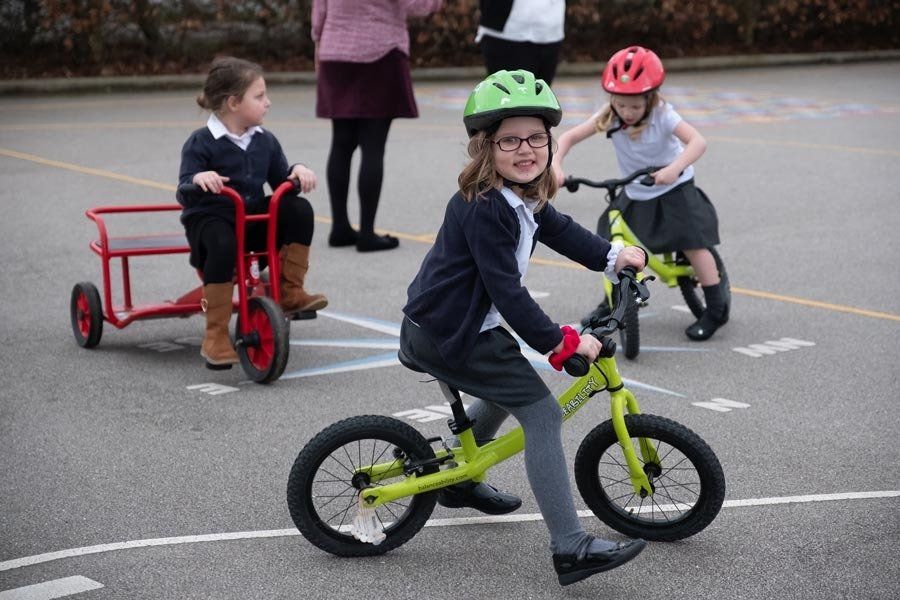
Physical activity is vital in children’s all-round development, enabling them to pursue happy, healthy and active lives. Gross and fine motor experiences develop incrementally throughout early childhood, starting with sensory explorations and the development of a child’s strength, co-ordination and positional awareness. This term the children will continue to use a wide range of mark making tools encouraging the correct pencil grip and the development of control. They will also be encouraged to continue developing their scissor skills and work with a range of resources, including playdough to build strength and dexterity in their hands.
This term the children will develop their motor skills in a variety of ways such as; practising using chop sticks, baking moon rock cakes, making pancakes for Shrove Tuesday and much, much more.
Outside, our gross motor sessions will continue, the children will experience using a wide variety of vehicles; trikes of all sizes, scooters, balance bikes and space hoppers. While riding on vehicles children will be encouraged to engage in a variety of activities linked to their learning, such as phonics games, creating and developing obstacle courses, basic mapping skills and so much more. Additionally, the children will all have access to our climbing frame. The children will also continue to be encouraged to build and climb on, around and under their own creations using the large construction equipment in our outdoor learning area such as; planks, crates, tyres and large wooden blocks.

Children’s personal, social and emotional development (PSED) is crucial for children to lead healthy and happy lives, and is fundamental to the cognitive development. Underpinning their personal development are the important attachments that shape their social world. Strong, warm and supportive relationships with adults enable children to learn how to understand their own feelings and those of others. We will continue our work on developing our self-regulation by identifying and naming our feelings and using our feelings display to express, share and discuss our range of emotions.
This term reception will be focusing on Identities and Diversity, Me and My World and My Body and Growing Up. The children will explore why they are special and what makes their own individual identity. They will begin to understand how they mix with others and belong to different groups e.g. their family, class, school, clubs; neighbourhood. They will examine similarities and differences between themselves and other children in the class, and will have opportunities to explore diversity in terms of gender, ethnicity, language, religion, culture, different family groupings, special educational needs and disability. They will learn about some of the similarities and differences between families including the different people in families and where families live. They will explore what is special about different families’ lifestyles including how a family’s cultural background, their traditions or beliefs can form an important part of their life, and ways in which this is celebrated. They will consider how what they do and say can affect the needs and feelings of other people and how they and everyone else have the right to be valued and treated fairly and equally whatever their cultural background or choice of lifestyle. The children will also be completing activities to explore what money is, what money is used for and other activities which relate to real life experiences.
Later in the term the children will learn how to value and appreciate their own and other people’s bodies. Children will learn to recognise and name external parts of the body using scientific names for the external sexual parts of the body. They will learn to recognise and appreciate similarities and differences between bodies, including those between girls and boys. The children will learn to appreciate the variety of things that they can do with their bodies, how they have changed physically since they were very young and how they will continue to grow and change all their lives. We will also look at personal hygiene and support children in developing appropriate levels of responsibility. Children will continue to develop basic hygiene routines, including toileting and washing, and will also learn about the importance of good hygiene and cleanliness for preventing the spread of disease. Children will be encouraged to analyse their own role in developing positive, responsible and caring attitudes. They will learn that, as they grow, they will become more independent and will take more responsibility for looking after themselves and things around them. The children will examine what they currently do to look after themselves, including dressing and undressing. They will learn to recognise areas where they still need support from others to ensure their personal needs are met and to be aware of the adults who help them.

The basis of good literacy skills is language comprehension (necessary for both reading and writing) which starts from birth. It only develops when adults talk with children about the world around them and the books (stories and non-fiction) they read with them, and enjoy rhymes, poems and songs together. For this reason, all of our literacy and topic related teaching and elements of our math’s teaching is based on high quality children’s books.
All nursery children take part in phase one phonics sessions which are all about tuning kin their ears and developing their listening skills, so they can begin to develop segmenting and blending skills which are needed as the basis for word reading and writing. This term the children will be begin to learn a variety of letter sounds and will begin to follow elements of the Nursery Sounds Write Phonics Scheme.
Reception children will continue to work on their phonics using the Sounds Write Phonics Scheme. Children will apply their phonics knowledge to whole word reading and writing, using their segmenting, blending and phoneme manipulation skills. Reception children will continue to bring home the Dandelion Reader reading books matched to their phonetic level, please continue to support your child with their reading by listening to them read as often as possible and encourage children to develop their fluency, prosody and comprehension skills. Handwriting of the correct letter formation will continue to take place within the phonics sessions and throughout the school day.
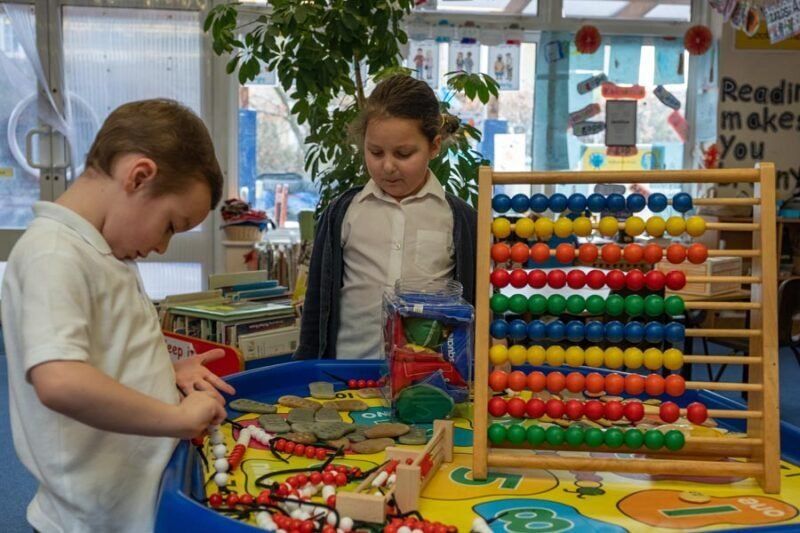
Developing a strong grounding in number is essential so that all children develop the necessary building blocks to excel mathematically. Children should be able to count confidently, develop a deep understanding of number including the relationships between them and the shapes and patterns associated with them.
This term Nursery will be focussing on consolidating numbers to 5, extending this to 10 and working on developing the children’s skills in pattern recognition, discrimination and construction. The children will continue to be introduced to the idea of sets, odd one out, grouping items by the identification of properties like colour, shapes and sizes. The development of the associated vocabulary will also be key.
Reception children will be representing the numbers 6,7,8,9 and 10, identifying one more and one less than these numbers, combining two groups and exploring the composition of these numbers. The children will also measure and compare height and length, learn the days of the week, measure time, explore pattern and investigate 2D and 3D shapes. Reception children will spend the latter half of the spring term consolidating their maths learning from both the autumn and spring term. Throughout their maths learning the children will continue to develop the number formation and use formal methods for recording addition and subtraction calculations. They will continue to solve a variety of problems involving number and use a wide range of manipulatives within their learning.
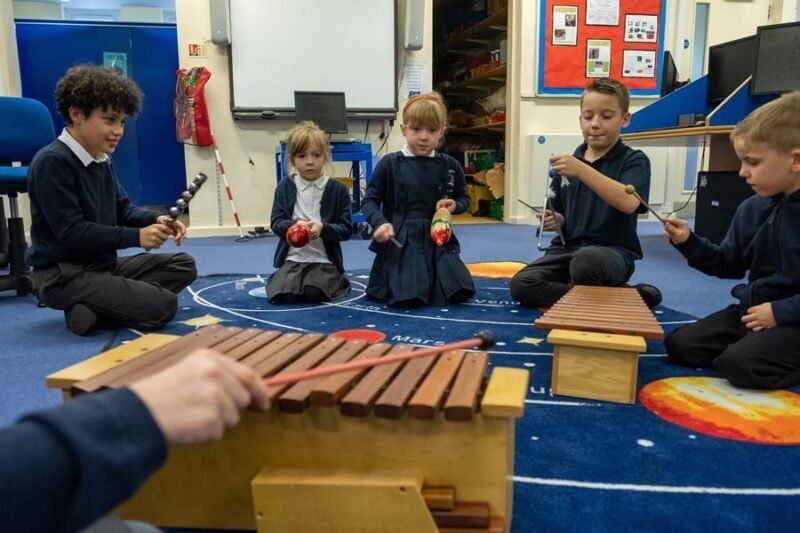
Understanding the world involves guiding children to make sense of their physical world and their community. The frequency and range of children’s personal experiences increases their knowledge and sense of the world around them. This term the nursery children will be using their topics of Dinosaurs and Growing and Changing to support the children learning linked to Understanding of the World. The children will be exploring what the world was like a long, long time ago, how we know about dinosaurs, fossils and extinction. Later in the term nursery will focus on Spring looking at new life, life cycles, plants, seeds, bulbs, plants we can eat and how people grow.
Reception children will use their topics of Space and Growing and Changing to support their Understanding of the World learning. In the topic of space, the children will learn about our planet Earth, including Earth’s plants, animals, weather and gravity. We will also learn all about the moon, including the moon landing, the sun, planets in our solar system, space travel, astronauts and astronomers. The children will learn about Galileo, Neil Armstrong, Mae Jemison, Tim Peake and Caroline Hershel. We will also learn all about the stars and their constellations, we will use traditional stories to explain the stars for example; The hunting of the Great Bear.
In the second half of the term reception will learn about how people and animals change as they grow, including the life cycles of a butterfly and frog. Children will identify and draw animals and their babies, including sheep and lambs, cow and calf, horse and foal, butterfly and caterpillar and frog and tadpole. The children will also learn about plants and how they grow from seeds and bulbs, what plants need to grow and identify parts of plants including roots, stem and leaves. We will be doing a walk in the locality to identify trees and plants growing locally and will draw pictures of our finds. Later in the half term we will be focussing on farming. The children will learn about farming in the past, present day farming, farming in our local area and identifying fruits and vegetables and where they come from.
Throughout this term the children will also learn about the season spring. We will use our Welly Walks to identify the first signs of spring such as; snowdrops, cherry blossom, buds and flowers etc.
We will also be learning about the festivals of Lunar New Year, Shrove Tuesday and thinking about the Christian time of lent, leading up to Easter
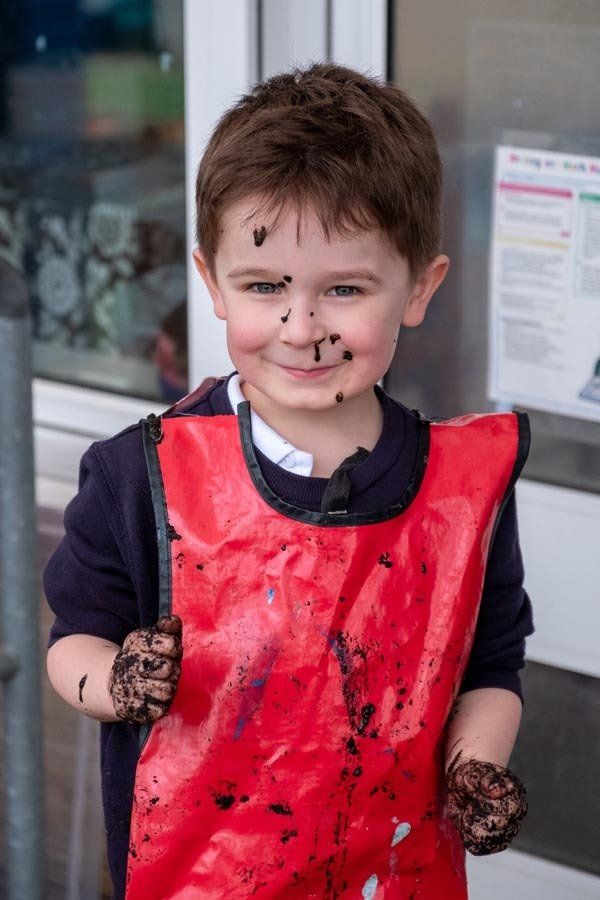
The development of children’s artistic and cultural awareness supports their imagination and creativity. It is important that children have regular opportunities to engage with the arts, enabling them to explore and play with a wide range or media and materials.
This term the children will have a wide range of creative projects to get involved in. In the first half of the term, reception will be learning about Friedensreich Hundertwasser, Jackson Pollock, Holst and Englebert Humperdinck. The children will be learning how to make different lines with different media, creating art in the style of Hundertwasser and creating drip paintings like Jackson Pollock. The children will also be listening and responding to Holst’s Planet Suite and learning about the composer Englebert Humperdinck, focusing on his Hansel and Gretel overture. Nursery will also be learning about Jackson Pollock however; they will be studying his painting Number 8. Nursery children will also be very busy developing their fine motor skills to create paper plate dinosaurs, design and make dinosaurs from malleable materials and construct dinosaur masks. The children will investigate shape and pattern in their artwork, use brushes with developing control to create large scale collaborative splatter/drip paintings and work together to paint/draw/collage a scene with a plesiosaur and a pterosaur.
In the second half of the term reception will explore what they can see in the world around them and where they live. The children will study how Vincent Van Gogh used different marks to draw still life, explore how L.S. Lowry drew houses and matchstick people and use the architecture of Friedensreich Hundertwasser to inspire them to draw imaginary houses. Using all of their knowledge of these different artists the children will then learn to draw pictures of different landmarks in the village, Ely, London etc. and create art in the style of L.S. Lowry.
Additionally, all children will design, plan and create and Easter Bonnet for the Easter parade.
Summer Term
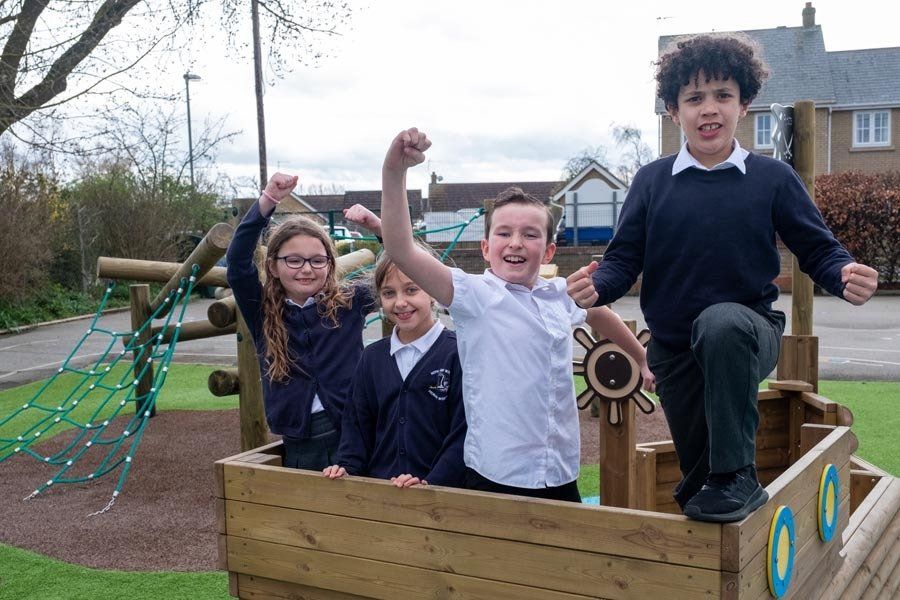
The development of children’s spoken language underpins all seven areas of learning and development. Children’s back-and-forth interactions from an early age form the foundations for language and cognitive development. This term we will be continuing to encourage all the children to feel confident at speaking with their peers, staff and as part of the class. We will be continuing to develop the children’s ability to track the speaker and actively follow what is being said and then offer a response. Our aim is that all the children are working towards using full sentences with clear articulation. We will also be learning some performance poetry this term and after half term will be using the book: Each Peach Pear Plum.
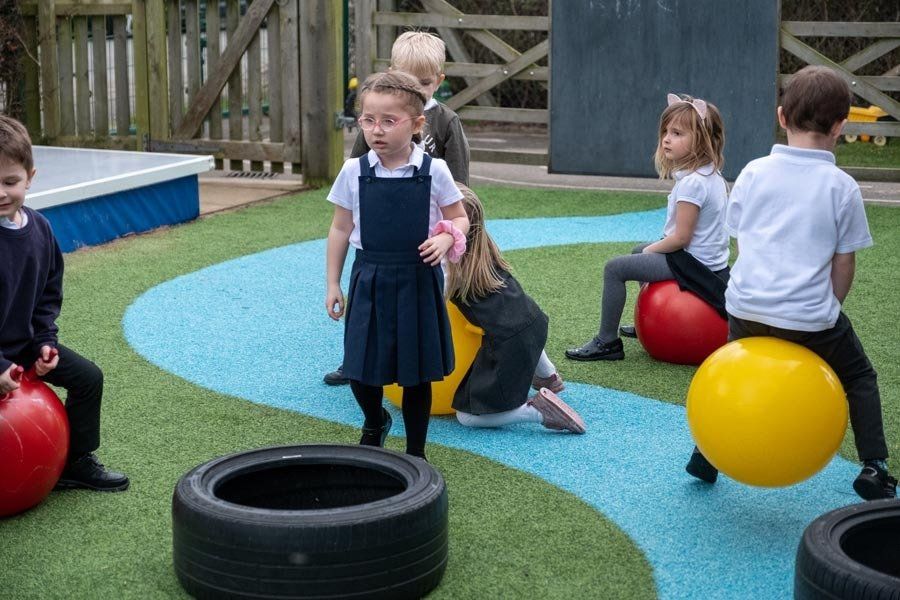
Physical activity is vital in children’s all-round development, enabling them to pursue happy, healthy and active lives. Gross and fine motor experiences develop incrementally throughout early childhood, starting with sensory explorations and the development of a child’s strength, co-ordination and positional awareness. This term the children will continue to use a wide range of mark making tools encouraging the correct pencil grip and the development of control. They will also have support to begin to develop their scissor skills and work with playdough in our playdough kitchen role play area.
As the term goes by there will be a variety of opportunities to use their motor skills for their art work.
Outside, our gross motor sessions will continue, the children will experience using a wide variety of vehicles: Scutter Bugs, trikes of all sizes, scooters, balance bikes and space hoppers. Additionally, the children will all have access to our climbing frame. While riding on vehicles will be encouraged to create and develop their own obstacle courses and road layouts and record these as maps using their mark making skills. This will link to our work on Road Safety in May.
We will be introducing more focused traditional sporting skills, such as using a bat and ball, different ways of travelling and moving over and under obstacles.
They will also continue to be encouraged to build and climb on around and under their own creations using the large building equipment in our outside learning area like Types, planks and crates.
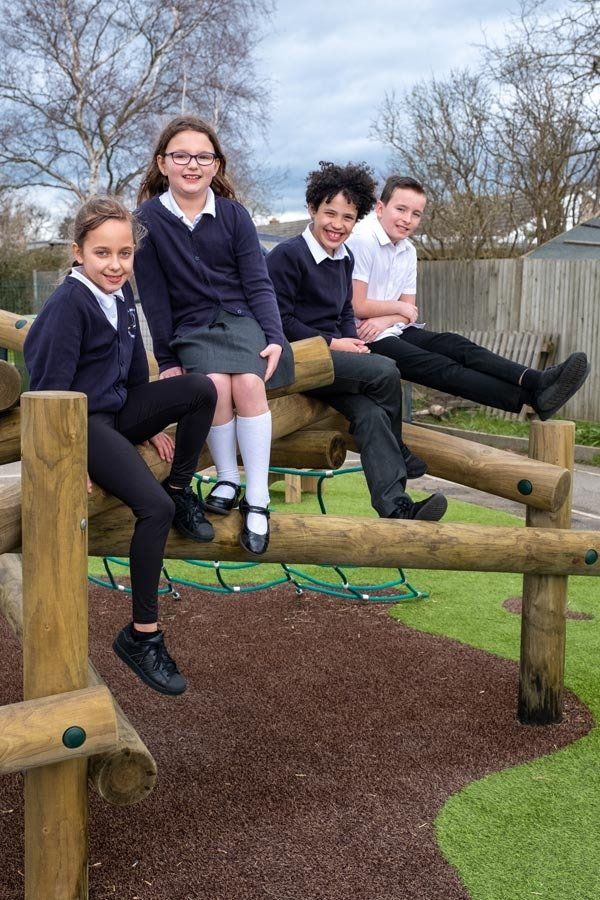
Children’s personal, social and emotional development (PSED) is crucial for children to lead healthy and happy lives, and is fundamental to their cognitive development. Underpinning their personal development are the important attachments that shape their social world. Strong, warm and supportive relationships with adults enable children to learn how to understand their own feelings and those of others.
During our PSED work, we will have a theme of “What makes us feel safe?” We will discuss staying safe at school and home, who makes us feel safe, how to be safe with medicines, yes/ no touches and how we can keep ourselves safe.
Additionally, we will also be continuing our work on developing our self-regulation by identifying and naming our feelings. Using feelings spinners and chatter to begin every day.

The basis of good literacy skills is language comprehension (necessary for both reading and writing) which starts from birth. It only develops when adults talk with children about the world around them and the books (stories and non-fiction) they read with them, and enjoy rhymes, poems and songs together. For this reason, all of our math’s literacy and topic related teaching is based on good quality children’s books and which child takes home a school bedtime story book weekly.
All nursery children take part in daily phase one phonics sessions which are all about tuning in their ears and developing their listening skills so they can begin to develop segmenting and blending skill which are needed as the basis for word reading.
Reception pupils this term will continue to work on their phonics learning their initial sounds and begin to apply them in whole word reading and writing using their segmenting, blending and phoneme manipulation skills. Reception children will begin taking home reading books with words during this term and focused reading games. The children have met and used the majority of the initial sounds, and are not working on building and reading longer words with a more complex structure. They are also developing a vocabulary of Common Exception Words, that cannot be sounded out but are necessary to read simple texts (such as he/ she/ was). Handwriting of the correct letter formation will continue to take place within the phonics sessions. We are going to use Dear Zoo, Rumble in the Jungle, My Bean Diary, Superworm and The Hungry Caterpillar as some of our focused texts this term.

Developing a strong grounding in number is essential so that all children develop the necessary building blocks to excel mathematically. Children should be able to count confidently, develop a deep understanding of the numbers, the relationships between them and the shapes and patterns associated with them. We will be looking at shapes in various situations and the relationships between shapes. We will learn and use their mathematical names. The Nursery children will look at how numbers are written and begin to match numerals to their amounts. They will sort and order objects, and try and find the total of two amounts in a physical context. The Reception children will be focusing on the numbers to 20 and working on developing the children’s skills in pattern recognition, discrimination and construction of these numbers. We will continue working on adding and subtracting. The children will be introduced to the idea of doubling and sharing amounts. The development of the associated vocabulary will also be key. Reception pupils will also be consolidating writing their number digits and using formal methods for recording addition and subtraction calculations. They will continue to solve a range of problems involving number and use manipulatives and the interactive white board within their learning.
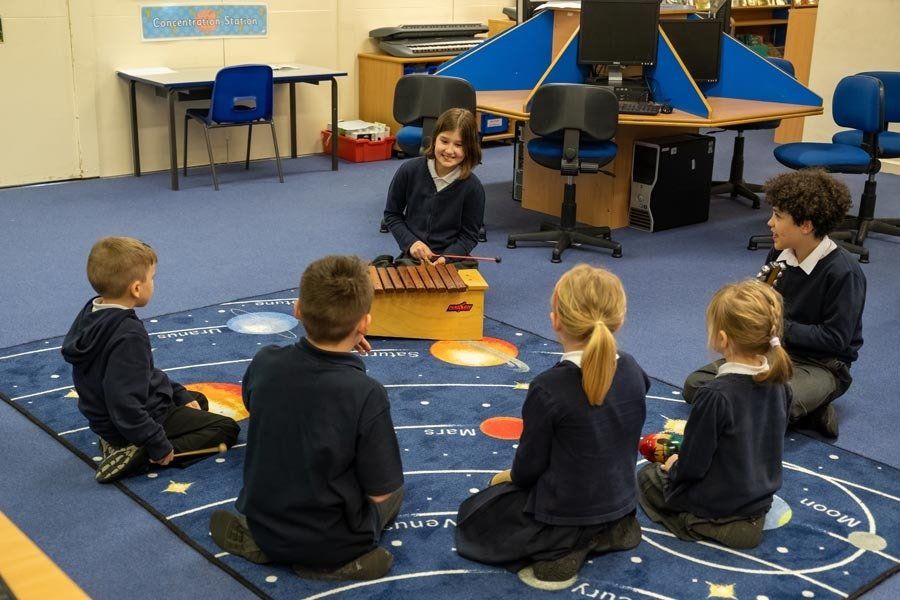
Understanding the world involves guiding children to make sense of their physical world and their community. The frequency and range of children’s personal experiences increases their knowledge and sense of the world around. This term we will be listening to a broad selection of stories, non-fiction, rhymes and poems will begin to foster the children’s understanding of our culturally, socially, technologically and ecologically diverse world. We will be learning about Ramadam and Eid Ul Fitr. Our science focus will be on plants for the first half term, and minibeasts and animal life cycles for the second half term. We will be looking at jungle habitats for animals when we return after Easter, and polar habitats after the May half term.
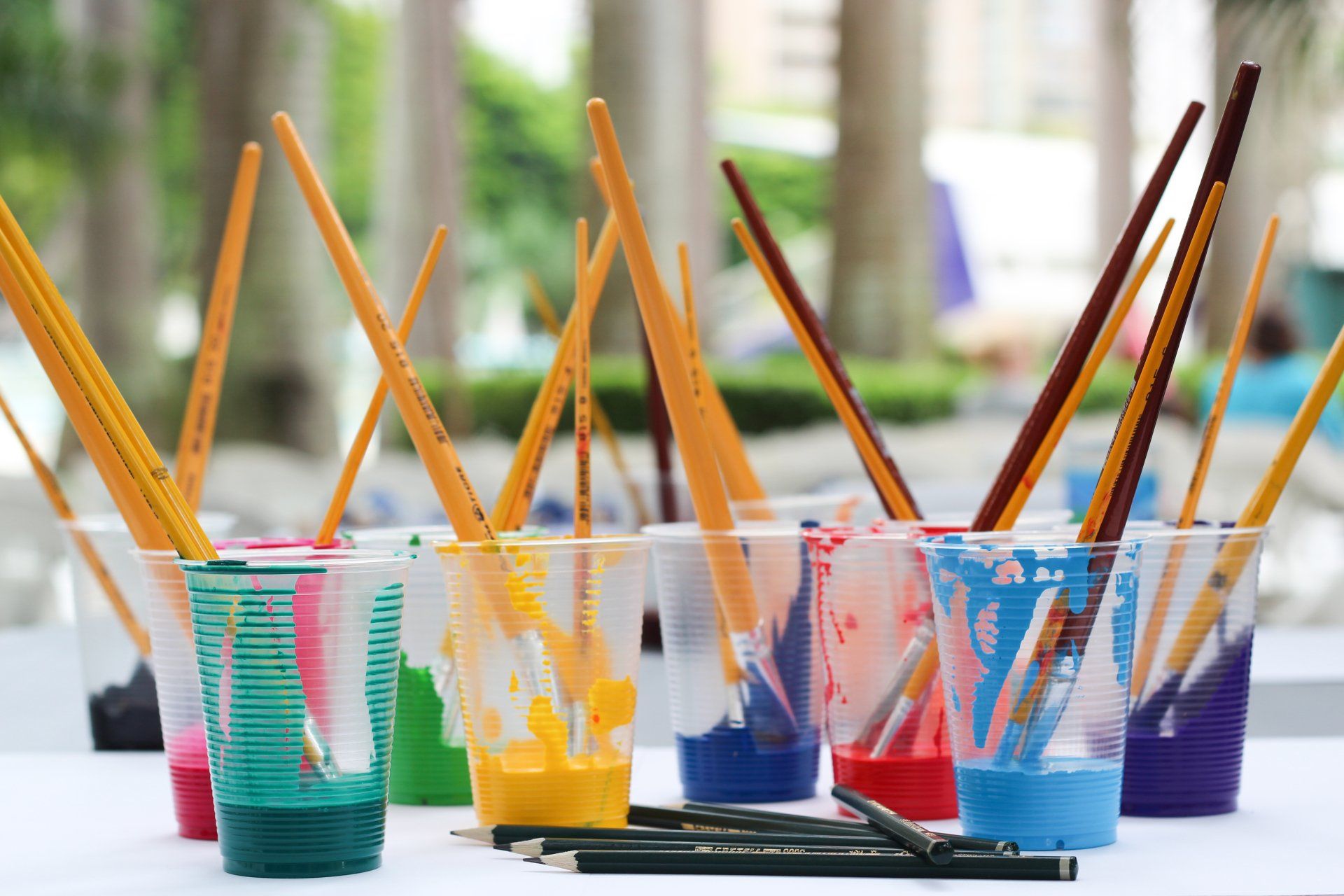
The development of children’s artistic and cultural awareness supports their imagination and creativity. It is important that children have regular opportunities to engage with the arts, enabling them to explore and play with a wide range of media and materials.
We will be developing collage skills through cutting, ripping and layering our work. We will focus on the painting Tiger in a Tropical Storm by Rousseau and some Warhol prints to make our own work on endangered animals. The children will also have the opportunity to in a range of media in continuous provision: mark making equipment like pencils and pens, paints, clay, junk modelling. We also have a range of musical instruments the children will be using to support our phonics work .
